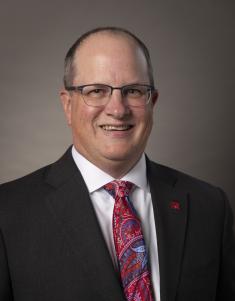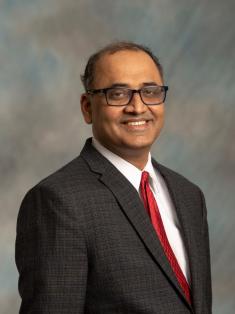Core Facilities for a 21st Century Research Institution

As a 21st-century research institution, Rutgers, The State University of New Jersey, seeks to increase collaboration, build cross-functional and multidisciplinary teams, and provide access to highly sophisticated equipment and knowledge through Universitywide core services.
Better Access to Core Facilities
Under the leadership of senior vice president for research, Michael E. Zwick, PhD, the Office for Research is committed to assist all researchers with the advanced tools and expertise they need, serving as a unifying force multiplier for the research community.

“We want to provide faculty with the very best experience through operating units with critical support, expertise, and access to complex or unique equipment or services that otherwise may be difficult to obtain,” said Zwick. “When we conceive core facilities as force multipliers, we boost the research enterprise as our facilities help us be more competitive for research grants, to recruit new faculty, and to retain faculty.”
Jeetendra Eswaraka, DVM, PhD, DACLAM, vice president for Universitywide Core Services, explains that when a research institution has core facilities staffed with professionals experienced in the techniques and use of specialized equipment, researchers can advance their investigations more effectively.
“We want to reduce barriers to entry, increase the effectiveness of the produced data sets, and make the research more impactful,” said Eswaraka.
Workforce Development through Hands-on Education
Operational improvements could also benefit students at the undergraduate level. By providing them with training opportunities at research laboratories, Rutgers Research is advancing their careers and developing a highly skilled workforce, empowering them to make a meaningful impact in their chosen fields.
“Many undergraduate students go to labs and wash glassware or other lower-level tasks for a semester or two before they get engaged with research because they don’t have the necessary skill sets. But if they work in cores and learn some new skill sets, they can say, ‘Oh, I know how to use this imaging system, or I know how to do this surgical technique,’ and then they are much more effective while participating directly in the science that will also help to build a workforce around it,” added Eswaraka.

Rutgers's new Research Core Services Policy (90.3.1) aims to “democratize access to the critical, state-of-the-art platforms and technologies essential for impact, partnership, and collaboration at Rutgers.” In addition to aiding researchers and students, it aims to assist Rutgers alums and individuals or institutions within New Jersey, including startups.
Inclusion
Zwick and Eswaraka are committed to ensuring Rutgers research cores promotes Rutgers' values and promotes an inclusive and multidisciplinary approach to research. This commitment ensures that everyone, regardless of background or identity, has equal opportunities to contribute to and benefit from Rutgers Research.
The force multiplier approach for core services aids in recruiting diverse faculty as it is not driven by the need of a particular faculty member but makes cutting-edge platforms available for all. When professional staff scientists are also recruited, institutions ensure opportunities “beyond the traditional faculty tenure track path,” as Zwick stated in an article published by the Journal of Biomolecular Technics.
“Force multiplier core facilities are one component that can be leveraged to help address structural racism in the research enterprise,” stated Zwick.
For more information about Rutgers core facilities, visit Find a Core Facility.
To learn how to become a core, visit Become a Core Facility.



